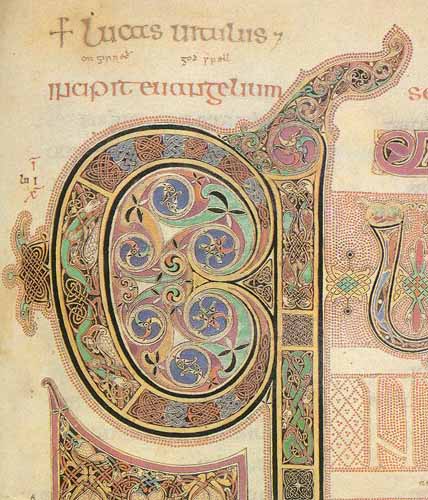CHAPTER TWENTY ONE: TWO BY TWO
The ministry of Jesus had gone on now for well over a year and a half, and there had been many ups and downs, surprises and delights, good times and bad times. None of the disciples could ever have imagined in advance all that had now transpired, but to say things had not gone as they had expected would be a gross understatement. It was more like a situation where one simply rolled with the punches, not knowing where the next blessing or blow would come from. Jesus felt it was time to send the disciples out, for them to extend the ministry themselves, and get some experience going forward, and so he gathered the Twelve, and others as well, and offered one more teaching before he commissioned them and sent them out.
The disciples were sitting in a circle, with the crowds gathering as usual on this hill above Kefer-Nahum. He called his twelve disciples to him and gave them authority to drive out unclean spirits and to heal every disease and sickness. Then these twelve Jesus sent out with the following instructions: “Do not go among the Gentiles or enter any town of the Samaritans. Go rather to the lost sheep of Israel. As you go, preach this message: ‘The kingdom of heaven is near.’ Heal the sick, raise the dead, cleanse those who have leprosy, drive out demons. Freely you have received, freely give. Do not take along any gold or silver or copper in your belts; take no bag for the journey, or extra tunic, or sandals or a staff; for the worker is worth his keep.”
“Whatever town or village you enter, search for some worthy person there and stay at his house until you leave. As you enter the home, give it your greeting. If the home is deserving, let your peace rest on it; if it is not, let your peace return to you. If anyone will not welcome you or listen to your words, shake the dust off your feet when you leave that home or town. Amen I say to you, it will be more bearable for Sodom and Gomorrah on the day of judgment than for that town. I am sending you out like sheep among wolves. Therefore be as shrewd as snakes and as innocent as doves.
“Be on your guard against men; they will hand you over to the local councils and flog you in their synagogues. There will even come a day when on my account you will be brought before governors and kings as witnesses to them and to the Gentiles. But when they arrest you, do not worry about what to say or how to say it. At that time you will be given what to say, for it will not be you speaking, but the Spirit of your Father speaking through you.
“Difficult times lie ahead for us all. Brother will betray brother to death, and a father his child; children will rebel against their parents and have them put to death. All men will hate you because of me, but he who stands firm to the end will be saved. When you are persecuted in one place, flee to another. Amen I say to you, you will not finish going through the cities of Israel, before the Son of Man comes, there are so many villages, and so much work to do.”
“Remember that a student is not above his teacher, nor a servant above his master. It is enough for the student to be like his teacher, and the servant like his master. If the head of the house has been called Beelzebub, how much more the members of his household! So do not be afraid of them. There is nothing concealed that will not be disclosed, or hidden that will not be made known. What I tell you in the dark, speak in the daylight; what is whispered in your ear, proclaim from the roofs. Do not be afraid of those who kill the body but cannot kill the spirit. Rather, be afraid of the One who can destroy both spirit and body in Gehenna. Are not two sparrows sold for a penny? Yet not one of them will fall to the ground apart from the will of your Father. And even the very hairs of your head are all numbered, and are counted precious. So don’t be afraid; you are worth more than many sparrows.
“Whoever acknowledges me before human beings, I will also acknowledge him before my Father in heaven. But whoever disowns me before human beings, I will disown him before my Father in heaven. Anyone who loves his father or mother more than me is not worthy of me; anyone who loves his son or daughter more than me is not worthy of me; and anyone who does not take his cross and follow me is not worthy of me. Whoever finds his life will lose it, and whoever loses his life for my sake will find it.
“He who receives you receives me, and he who receives me receives the one who sent me. Anyone who receives a prophet because he is a prophet will receive a prophet’s reward, and anyone who receives a righteous man because he is a righteous man will receive a righteous man’s reward. And if anyone gives even a cup of cold water to one of these little ones because he is my disciple, Amen I say to you, he will certainly not lose his reward.”
Having authorized, empowered and instructed them in this fashion, Jesus sent them out two by two according to the word of Torah that the truth of anything can be confirmed by the testimony of two witnesses. He sent them out as his agents, extensions of his own ministry, empowered to do exactly the same things that he had already been doing, only doing them in his name, by his authority and power. There were others there present who wanted to be Jesus’ disciples, and had been inspired by Jesus’ challenging words on this occasion. A teacher of the law came to him and said, “Teacher, I will follow you wherever you go.”
Jesus replied, “Foxes have holes and birds of the air have nests, but the Son of Man has no place to lay his head.”
Another disciple said to him, “Lord, first let me go and bury my father.”
But Jesus told him, “Follow me, and let the dead bury their own dead.” Then Jesus said to both the disciples and the crowd, “Amen I say to you, if anyone would be my disciple they must take up their own crosses, daily, and come and follow me.”
With this challenge, various of the members of the crowd began to leave to go back to their homes, and the Twelve set out on their mission. But a large number of disciples remained to hear more from Jesus, wishing for a commission of their own. So Jesus set aside six dozen more pairs of disciples, men paired with men and women paired with women, and sent them out with the same commission, authority, and power as the Twelve. An all out effort was being made by Jesus to spread the good news about the inbreaking Dominion of G-d throughout Galilee. Having sent all the disciples away, Jesus quietly headed for the road beside the Kinneret which led south to Judea once more. He had not gotten far south of Tiberias however when a man stopped Jesus along the way with an invitation. “Master, will you come and dine in the house of my master Simon, he would like to make your acquaintance.” It was already late in the afternoon, and Jesus was hungry, so he readily agreed to this offer.
Now the invitation had come from a man named Simon who was one of the Pharisees who lived by the Kinneret and had heard much about Jesus and his teaching and healing. In fact there had been women in his little village whom Jesus had healed. Jesus went to the Pharisee’s house and reclined at the table, with him, enjoying a leisurely meal. When the meal was nearing its conclusion, a woman who had lived a sinful life in that town unexpectedly and boldly entered the Pharisee’s house. This woman had learned that Jesus was eating there. She came directly into the house without knocking on the door or waiting to be invited in. She had brought an alabaster jar of perfume, and as she stood behind Jesus at his feet which were at the end of the couch where he was reclining, she began to wet his feet with her tears. Then she wiped them with her hair, kissed them and poured perfume on them.
When the Pharisee who had invited Jesus to dine saw this, he said to himself, “If this man was a prophet, he would know who is touching him and what kind of woman she is–that she is a sinner.”
Jesus heard this remark and responded saying, “Simon, I have a story to tell you.”
“Tell me, teacher,” he said.
“Two men owed money to a certain moneylender. One owed him five hundred denarii, and the other fifty. Neither of them had the money to pay him back, so he canceled the debts of both. Now which of them will love him more?”
Simon replied, “I suppose the one who had the bigger debt canceled.”
“You have judged correctly,” Jesus said.
Then he turned toward the woman and said to Simon, “Do you see this woman? I came into your house. You did not follow the customary courtesies by giving me water to wash my feet and hands, but she wet my feet with her tears and wiped them with her hair. You did not give me the usual kiss of greeting either, but this woman, from the time I entered, has not stopped kissing my feet. Furthermore, you did not put oil on my head as is the custom coming in out of the sun, but she has poured perfume on my feet.
“Therefore, I tell you, her sins, which are many, have been forgiven– this explains why she loves much. But he who has been forgiven little loves little.”
Then Jesus said to the grateful woman, “Your sins are indeed forgiven.”
The other guests of Simon at the meal began to say among themselves, “Who is this who even dares to forgive sins? No one can forgive sins but G-d alone,”
Jesus smiled at them and said, “You have said it!’ and then he turned to the woman and said to her, “Your faith has healed you; shalom be unto you.” With that Jesus thanked Simon for the meal, and excused himself, leaving just after the woman had departed.

